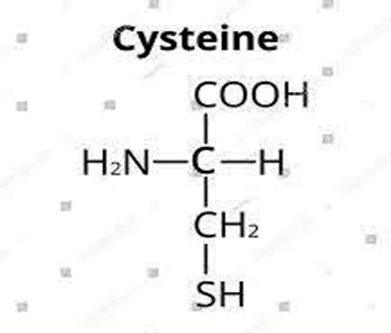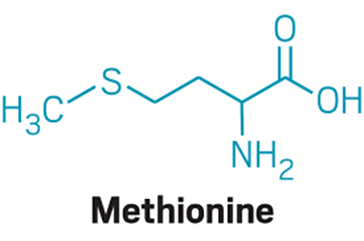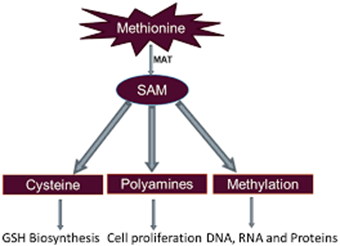AUCTORES
Globalize your Research
Review Article
*Corresponding Author: Ven Dr. Sumedh Thero, Chief Priest & Founder Sumedh Bhoomi Buddha Vihar, Dr Ambedkar Park, Jhansipura, Lalitpur -284403, India.
Citation: Ven Dr. Sumedh Thero, (2022) Glutathione for defense of your body’s natural antioxidant. Archives of Medical Case Reports and Case Study, DOI:6(5); DOI:10.31579/2692-9392/156
Copyright: © 2022 Ven Dr. Sumedh Thero, This is an open-access article distributed under the terms of the Creative Commons Attribution License, which permits unrestricted use, distribution, and reproduction in any medium, provided the original author and source are credited.
Received: 16 November 2022 | Accepted: 21 November 2022 | Published: 25 November 2022
Keywords: glutathione; amino acids; protein; parkinson’s; anti-aging
Glutathione is a powerful antioxidant that has gained a lot of attention for its purported health benefits. But what is glutathione, and does it actually affect the body ?Some people swear by its anti-aging properties, while others say that it can treat autism, increase fat metabolism, and even prevent cancer. It is best to avoid high-dose antioxidant supplements unless a trusted healthcare provider prescribes or recommends them. The best way to take in antioxidants is through foods and beverages, such as vegetables, fruits, nuts, fish, spices, and tea. The levels of the antioxidant GSH, which can be increased through diet and lifestyle changes, may influence motivation levels. People often want to get more done in a day, but sometimes it’s hard to feel motivated to complete tasks. Several factors influence motivation, but there’s a lot about the physiology behind motivation that experts don’t completely understand. A recent study published in eLife found that levels of the antioxidant glutathione in a specific part of the brain likely play a key role in motivation levels. One can increase their glutathione levels through dietary sources, for example, by eating sulfur-rich foods such as meat, eggs, and grains, and consuming more dairy and whey protein.
Glutathione is a powerful antioxidant found in every cell in the body. It is made of three types of molecules known as amino acids. Amino acids combine in different patterns to make all of the proteins in the body. One unique thing about glutathione is that the body is able to make it in the liver, which is not true of most antioxidants.
Glutathione has many important functions, including:
making DNA, the building blocks of proteins and cells
supporting immune function
forming sperm cells
breaking down some free radicals
helping certain enzymes function
regenerating vitamins C and E
transporting mercury out of the brain
helping the liver and gallbladder deal with fats
assisting regular cell death (a process known as apoptosis)
Researchers have found links between low levels of glutathione and some diseases. It is possible to increase glutathione levels through oral or intravenous (IV) supplementation. Another option is to take supplements that activate the natural glutathione production in the body. These supplements include:
milk thistle N-acetyl cysteine superoxide dismutase Reducing toxin exposure and increasing intake of healthful foods are also excellent ways to naturally increase glutathione levels. Cysteine is a non-essential amino acid important for making protein, and for other metabolic functions. It's found in beta-keratin. This is the main protein in nails, skin, and hair. Cysteine is important for making collagen. It affects skin elasticity and texture.


The benefits of glutathione may include:
1. Antioxidant activity
Free radicals may contribute to aging and some diseases. Antioxidants help to counteract free radicals and protect the body from their damaging effects.
Glutathione is a very strong antioxidant, partly because high concentrations can be found in every cell in the body.
2. Preventing cancer progression
Some researchTrusted Source shows that glutathione has a role in preventing the progression of cancer. Oxidative stress has long been implicated in cancer development and progression (Hussain, et al, 2003), suggesting that antioxidant treatment may provide protection from cancer (Cabello, et al, 2007). On other hand, prooxidant therapies, including ionizing radiation and chemotherapeutic agents, are widely used in clinics, based on the rationale that a further oxidative stimulus added to the constitutive oxidative stress in tumor cells should, in fact, cause the collapse of the antioxidant systems, leading to cell death (Lecane,et al 2005).However, the same research indicates that glutathione may make tumors less sensitive to chemotherapy, which is a common cancer treatment.
Determining the effects of glutathione on cancer will require more research. Glutathione supplementation improves oxidative damage in experimental colitis (Loguercio, 2003).
3. Reducing cell damage in liver disease
Hepatitis, alcohol abuse, and fatty liver disease all damage the cells of the liver.
A small 2017 clinical trialTrusted Source concludes that glutathione could help treat nonalcoholic fatty liver disease due to its antioxidant properties and potential to detoxify.
The researchers note that larger studies are needed to confirm this effect.
4. Improving insulin sensitivity
Insulin resistance can result in the development of type 2 diabetes. The production of insulin causes the body to move glucose (sugar) from the blood and into cells that use it for energy. A small 2018 studyTrusted Source indicates that people with insulin resistance tend to have lower glutathione levels, particularly if they have experienced complications, such as neuropathy or retinopathy.
5. Reducing symptoms of Parkinson’s disease
According to some researchTrusted Source, there is evidence that maintaining glutathione levels may help with the symptoms of Parkinson’s disease. Parkinson's disease is a progressive disorder that affects the nervous system and the parts of the body controlled by the nerves. Symptoms start slowly. The first symptom may be a barely noticeable tremor in just one hand. Tremors are common, but the disorder may also cause stiffness or slowing of movement. The findings appear to support injected glutathione as a potential therapy, but there is little evidence about oral supplementation. Further research is necessary to support its use.


6. Reducing ulcerative colitis damage
Like other inflammatory diseases, ulcerative colitis has been linked to oxidative damage and stress. A 2003 animal studyTrusted Source suggests that glutathione supplementation can improve some of
the damage to the colon in rats. Determining the effects of glutathione on ulcerative colitis will require more research in humans. People may find Exercise: A 2018 systematic reviewTrusted Source of animal studies found that exercise can reduce memory impairment in subjects with stress, although studies on humans are necessary to confirm this.

Reducing the intake of alcohol, drugs, and caffeine: These substances will not help prevent stress, and they can make it worse.
Nutrition: A healthful, balanced diet containing plenty of fruit and vegetables can help maintain the immune system at times of stress. A poor diet can lead to ill health and additional stress.
Priority management: It may help to spend a little time organizing a daily to-do list and focusing on urgent or time sensitive tasks. People can then focus on what they have completed or accomplished for the day, rather than on the tasks they have yet to complete.
Time: People should set aside some time to organize their schedules, relax, and pursue their own interests.
Breathing and relaxation: Meditation, massage, and yoga can help. Breathing and relaxation techniques can slow down the heart rate and promote relaxation. Deep breathing is also a central part of mindfulness meditation.
Talking: Sharing feelings and concerns with family, friends, and work colleagues may help a person “let off steam” and reduce feelings of isolation. Other people may be able to suggest unexpected, workable solutions to the stressor.
Acknowledging the signs: A person can be so anxious about the problem causing the stress that they do not notice the effects on their body. It is important to be mindful of any changes (Michael, et al, 2017).
Noticing signs and symptoms is the first step to taking action. People who experience work stress due to long hours may need to “take a step back.” It may be time for them to review their working practices or talk to a supervisor about finding ways to reduce the load. Most people have an activity that helps them relax, such as reading a book, going for a walk, listening to music, or spending time with a friend, loved one, or pet. Joining a choir or a gym also helps some people relax.


7. Treating autism spectrum disorders
There is some evidence that children with autism have lower levels of glutathione than neurotypical children, or those without autism. “Neurotypical” is a term that's used to describe individuals with typical neurological development or functioning. It is not specific to any particular group, including autism spectrum disorder. In other words, it's not used to describe individuals who have autism or other developmental differences. In 2011, researchersTrusted Source found that oral glutathione supplements or injections might reduce some effects of autism.

However, the team did not look specifically at the children’s symptoms to see if any had improved, so further research is needed to determine this impact. Eating sulfur rich foods may increase glutathione levels in the body. Sulfur occurs in several amino acids, two of which — methionine and cysteine — are precursors for glutathione and therefore contribute to its synthesisTrusted Source. Methionine is an essential amino acid found in meat, fish, and dairy products. Amino acids are the building blocks used to make proteins. Methionine cannot be made by the body, so it must be consumed in the diet. It plays an important role in the many functions within the body.


According to a 2017 study, mushrooms are among the most significant dietary sources of glutathione and ergothioneine, the latter of which is a sulfur amino acid. However, levels of these compounds can vary widely depending on the species of mushroom.
Other sulfur rich foodsTrusted Source include: meat, eggs, and fish, grains, including rice, bread, and pasta
vegetables, such as onion, garlic, broccoli, kale, and cabbage
According to a 2013 pilot studyTrusted Source, one 250-gram portion of steamed broccoli increased the activity of the enzyme glutathione S‐transferase, suggesting increased plasma levels of glutathione, and improved oxidative stress resistance in 10 healthy adult males who smoked.
However, few large scale clinical trials have assessed the efficacy of dietary sulfur amino acids in reducing oxidative stress. Therefore, more research is necessary to validate findings from preliminary and small scale studies.
2. Consume more dairy
Dairy products contain the protein beta-casein, which has the potential to increase glutathione levels in the body.
In a small 2015 studyTrusted Source, researchers found associations between higher dairy consumption and higher glutathione concentrations in the brains of older adults.
However, increases in glutathione seem to vary depending on the type of beta-casein. Dairy milk can contain different variations of the beta-casein protein, called A1 and A2. These variations seem to affect glutathione concentrations differently.
According to one 2016 studyTrusted Source, people who drank dairy milk containing only A2 beta-casein showed higher increases in plasma glutathione concentrations than those who consumed milk containing both A1 and A2 beta-casein.
3. Consume more whey protein
Whey is another protein that is present in dairy products. It also contains large quantities of cysteine. In a 2012 studyTrusted Source, researchers found that whey protein alleviated oxidative stress in human colon cancer cells, which they believed was possible because the protein increased glutathione levels.
Findings from an earlier study suggest that whey protein can decrease oxidative stress in the lungs of people with cystic fibrosis by increasing glutathione levels. However, it appears that whey protein supplementation did not improve lung function.
4. Get more exercise
Share on PinterestRegular exercise may reduce a person’s oxidative stress.
Doctors and other healthcare professionals highly recommend regular physical activity because it supports both mental and physical well-being.
Research has also suggested that exercise can reduce oxidative stress by increasing glutathione levels. In a 2014 study, researchers observed that older adults who had participated in regular physical activity throughout their lives had higher levels of glutathione.
They also noted that exercise increased glutathione concentrations among adults who led a sedentary lifestyle. However, the researchers only observed this increase in younger adults.
These findings suggest that leading a physically active life can lead to long term health benefits.
Possible benefits of glutathione
Glutathione plays several vital rolesTrusted Source in supporting overall health. Among other things, it can:
neutralize free radicals
regenerate vitamins C and E
remove mercury from the brain
regulate cell growth and death
maintain mitochondrial DNA
activate antioxidant enzymes
Due to its role in preventing cellular damage, many people believe that glutathione can offer numerous health benefits. For example, it may:
reduce inflammation and oxidative damage
promote cardiovascular health
slow cancer progression
slow aging processes
improve immune function
prevent neurodegenerative conditions
minimize cell damage from liver disease
improve insulin resistance
Although there is a need for more research, glutathione may also have condition specific benefits:
Research has also found no clear benefit of antioxidant supplements on disease risk. Some evidenceTrusted Source suggests that high-dose supplementation with vitamin E, vitamin A, and beta-carotene may increase mortality risk.
Another approach, which allows measurement of the glutathione redox potential at a high spatial and temporal resolution in living cells, is based on redox imaging using the redox-sensitive green fluorescent protein (roGFP Meyer, et al, 2007) or redox-sensitive yellow fluorescent protein (rxYFP) Maulucci, et al 2008. Because of its very low physiological concentration, GSSG is difficult to measure accurately. GSSG concentration ranges from 10 to 50 μM in all solid tissues, and from 2 to 5 μM in blood (13–33 nmol/g Hb). GSH-to-GSSG ratio of whole cell extracts is estimated from 100 to 700 Giustarini, et al, 2013. Those ratios represent a mixture from the glutathione pools of different redox states from different subcellular compartments (e.g. more oxidized in the ER, more reduced in the mitochondrial matrix), however. In vivo GSH-to-GSSG ratios can be measured with subcellular accuracy using fluorescent protein-based redox sensors, which have revealed ratios from 50,000 to 500,000 in the cytosol, which implies that GSSG concentration is maintained in the pM range Schwarzländer, et al, 2016.
This suggests that taking supplements of certain antioxidants may disrupt the body’s natural antioxidant defense network and even harm health when taken inappropriately. Conversely, research has consistently linked antioxidant-rich diets high in vegetables, fruits, spices, and other natural sources of antioxidants with decreased disease riskTrusted Source and have found no associations with any adverse health outcomes.For this reason, experts suggest that people should focus on consuming antioxidants through the foods they eat. They do not recommend that people take high-dose antioxidants supplements unless specifically recommended by a healthcare provider. There is no doubt that consuming a diet high in antioxidant-rich foods is beneficial for health and may help prevent disease development. However, researchers do not routinely recommend antioxidant supplements for health promotion because some evidence suggests that taking high-dose antioxidant supplements may be harmful to a person’s overall health. It is best to avoid high-dose antioxidant supplements unless a trusted healthcare provider prescribes or recommends them. The best way to take in antioxidants is through foods and beverages, such as vegetables, fruits, nuts, fish, spices, and tea.